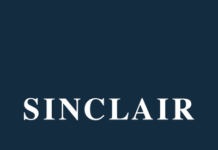Measuring a consumer’s sentiment is not quite the same as measuring a consumer’s height and weight, and the nebulous characteristics of the endeavor seem to be producing a wide variety of results from one survey to the next. But one of the most widely read, that of the Conference Board, says consumer confidence enjoyed an uptick in July.
The Conference Board Consumer Confidence Index bumped up to 59.5, a gain of almost two points from June’s reading of 57.6; and the Expectations Index rose to 75.4 from 71.6.
The Present Situation Index had a contrary result, dropping to 35.7 in July compared to a 36.6 score in June.
CB’s Lynn Franco stated, “Consumer confidence posted a modest gain in July, the result of an improvement in consumers’ short-term outlook. Consumers’ appraisal of current business and employment conditions, however, was less favorable as concerns about the labor market continue to weigh on consumers’ attitudes. Overall, consumers remain apprehensive about the future, but some of the concern expressed last month has abated.”
Other present-day readings were negative. 13.4% of respondents believe business conditions are good right now, down from 13.7; and 39% believe business conditions are bad, up from 38.4%. 44.1% believe jobs are hard to get, compared to 5.1% who believe they are plentiful.
Expectations for six months down the road improved, but the number expecting improvement in that time frame is still a lackluster 17.7%. However, that is better than the 16.5% who thought the same in June. Employment expectations improved even more but were also lackluster, coming in at 16.7% compared to June’s 13.8%. The ugly underbelly of that statistic is that 21.8% expect the employment market to worsen over the same period, compared to 20.7% in June. Essentially, consumers in the middle in June left the center and became either optimists or pessimists.
RBR-TVBR observation: In general, confidence surveys have shared one over-riding characteristic of late. Whichever direction they turned, they did not go far. It’s a sign of an economy in a rut – it’s not getting better real fast, but at the same time it isn’t in freefall either. A major economic event could change things fast, but will it be a boon or a cataclysm? That’s the question nobody can answer.



